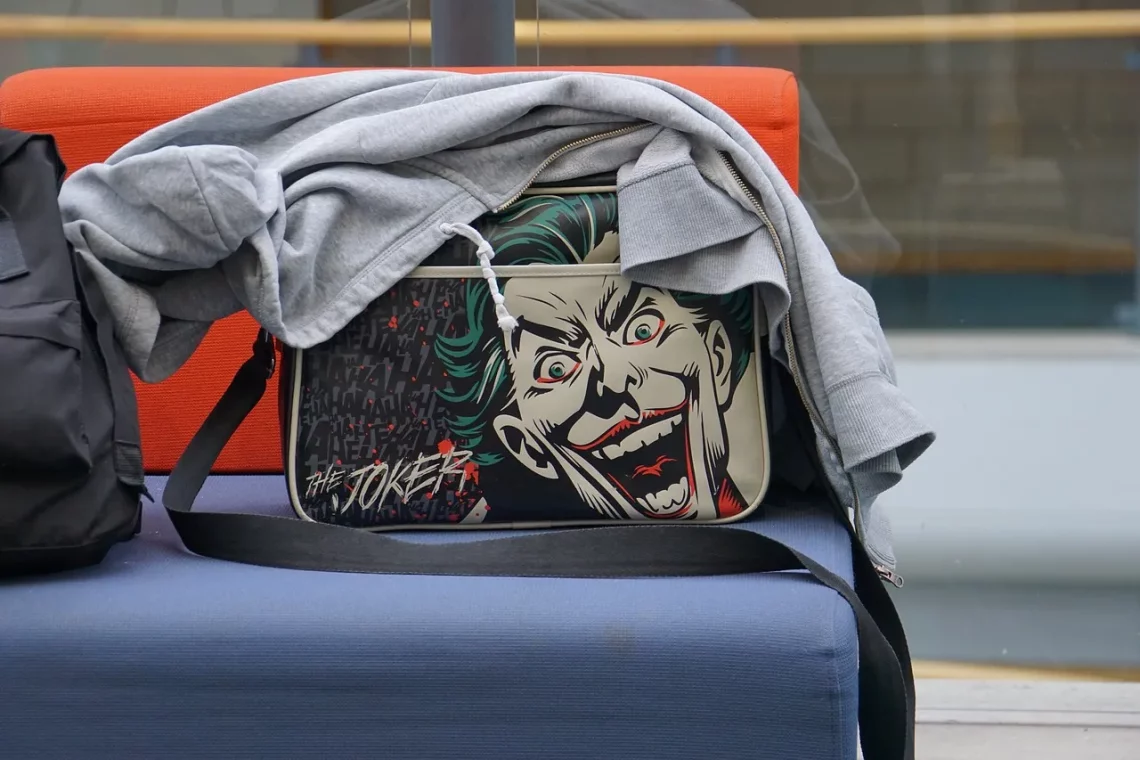
Test Your Knowledge with This Ultimate Marvel Comics Quiz
As fans of superhero lore and vibrant comic book artistry, Marvel Comics has carved out a unique niche in popular culture. Rooted in rich storytelling and diverse characters, the Marvel Universe offers an expansive world that captivates readers of all ages. From the heroic deeds of Spider-Man swinging through New York City to the cosmic adventures of the Guardians of the Galaxy, Marvel has an incredible ability to blend action, drama, and humor. The narratives often delve into complex themes such as identity, morality, and sacrifice, making them not just entertaining, but also thought-provoking.
Marvel characters are more than just caped heroes; they represent a myriad of backgrounds, struggles, and triumphs. This diversity not only enriches the stories but also fosters a sense of connection among readers. Each comic is a portal into another world, and for many, these stories serve as a source of inspiration and escapism. Fans gather at conventions, engage in discussions, and partake in quizzes to showcase their knowledge and passion for these beloved characters and storylines. The thrill of testing one’s knowledge about the Marvel Universe is akin to stepping into the shoes of a superhero, with every question serving as a challenge to one’s memory and comprehension of this vast universe.
With a plethora of memorable plots, iconic heroes, and villainous foes, the Marvel Comics world is ripe for exploration. Whether you’re a casual reader or a die-hard enthusiast, there’s always something new to discover or revisit. So, gear up and prepare to dive into the Marvel multiverse as we put your knowledge to the test!
The Origins of Marvel Comics
Marvel Comics has a storied history that dates back to the early 20th century. Initially founded as Timely Publications in 1939, the company introduced iconic characters that would later define the comic book industry. The introduction of characters like Captain America marked a significant moment in American culture, as they embodied the spirit of resilience and patriotism during challenging times. Over the decades, the company evolved and rebranded itself as Marvel Comics, paving the way for an explosion of creativity and innovation.
In the 1960s, Marvel saw a major transformation under the creative direction of figures like Stan Lee and Jack Kirby. This era introduced a new style of storytelling that focused on character development and relatable conflicts. Heroes were no longer just perfect beings; they had flaws, struggles, and personal lives that resonated with readers. Characters such as Spider-Man, the X-Men, and the Fantastic Four emerged, each grappling with their own challenges while trying to save the world.
The groundbreaking storytelling techniques employed by Marvel set the stage for the modern comic book narrative. The interconnected universe, where characters could cross over into each other’s stories, created a sense of continuity and depth that was previously unseen. This approach not only captivated audiences but also laid the groundwork for the expansive Marvel Cinematic Universe, which has further popularized these beloved characters on the big screen.
Marvel’s influence extends beyond just comics and movies; it has permeated various aspects of popular culture. From merchandise to video games and animated series, the characters have become household names. This cultural significance highlights the enduring legacy of Marvel Comics and its ability to adapt and thrive in a constantly changing landscape.
Iconic Superheroes and Their Impact
Marvel Comics is home to a plethora of iconic superheroes, each with their unique narratives and characteristics. From the web-slinging antics of Spider-Man to the indomitable strength of the Hulk, these characters have transcended their comic book origins to become cultural icons. The relatability of their struggles and the moral dilemmas they face resonate with readers, making them more than just fictional characters.
Spider-Man, for instance, embodies the classic mantra of “with great power comes great responsibility.” His journey from a high school student grappling with personal issues to a full-fledged hero reflects the trials and tribulations of adolescence. This relatability has endeared him to generations of fans, making him one of the most recognizable heroes in the world.
Similarly, characters like Iron Man and Black Panther have redefined the superhero archetype. Iron Man’s journey from a self-centered industrialist to a selfless hero showcases the potential for personal growth and redemption. On the other hand, Black Panther not only represents power and strength but also explores themes of identity, heritage, and cultural pride, particularly in relation to African culture.
The impact of these characters extends beyond entertainment; they serve as symbols of hope and inspiration. Many readers find solace in their stories, often drawing parallels to their real-life challenges. Moreover, the diversity of characters in the Marvel Universe has helped promote inclusivity and representation, allowing readers from various backgrounds to see themselves reflected in these powerful narratives.
The evolution of Marvel superheroes has also influenced societal discourse, addressing issues such as mental health, discrimination, and the complexities of morality. Through their stories, Marvel characters challenge readers to think critically about these topics, fostering empathy and understanding.
The Villains That Shape the Heroes
In the realm of Marvel Comics, villains are just as crucial to the narrative as the heroes. The adversaries that heroes face often serve as reflections of their own struggles, providing depth and complexity to the storyline. Characters like Magneto, Loki, and Thanos have become iconic in their own right, each embodying unique motivations and philosophies that challenge the status quo.
Magneto, for example, represents the struggle for acceptance and the consequences of prejudice. His complex background as a Holocaust survivor informs his actions, highlighting the fine line between heroism and villainy. This nuance adds layers to the character, prompting readers to consider the moral ambiguities of his choices.
Loki, the God of Mischief, offers a different perspective on villainy. His motivations are often driven by a desire for recognition and acceptance, making him a tragic figure rather than a straightforward antagonist. This complexity allows for dynamic interactions with heroes like Thor, showcasing the intricate relationships that exist within the Marvel Universe.
Thanos, on the other hand, presents a more philosophical threat. His quest for balance in the universe, albeit through catastrophic means, forces heroes to confront their values. The narrative surrounding Thanos delves into existential themes, prompting discussions about sacrifice, morality, and the nature of power.
These villains not only present challenges to the heroes but also serve as catalysts for character development. The encounters and conflicts shape the heroes, pushing them to grow and evolve in ways that resonate with readers. The interplay between heroes and villains is a central theme in Marvel Comics, emphasizing that every hero’s journey is defined by the obstacles they overcome.
Marvel’s Cultural Relevance Today
In recent years, Marvel Comics has solidified its position as a cultural phenomenon, transcending the realm of comics and permeating various aspects of entertainment and media. The Marvel Cinematic Universe (MCU) has played a pivotal role in this transformation, bringing beloved characters to life on the silver screen and captivating audiences worldwide. The success of blockbuster films has not only reignited interest in the comics but has also introduced new fans to the expansive Marvel Universe.
The accessibility of Marvel stories through films, television shows, and streaming platforms has allowed for a broader audience to engage with these characters. This shift in consumption patterns has led to a resurgence in comic book sales and renewed interest in character-driven narratives. The rise of streaming services has also paved the way for Marvel series that explore characters in greater depth, offering fans a chance to connect with their favorites beyond the traditional comic book format.
Additionally, Marvel’s commitment to diversity and representation has garnered significant attention and praise. The introduction of characters like Ms. Marvel and Shang-Chi highlights the importance of inclusivity in storytelling, allowing underrepresented voices to shine. These characters not only resonate with diverse audiences but also enrich the Marvel narrative tapestry, demonstrating that heroism can take many forms.
The cultural relevance of Marvel extends beyond entertainment. The themes explored in the comics and films often reflect societal issues, encouraging discussions around topics like justice, identity, and morality. As fans engage with these narratives, they are prompted to reflect on their values and beliefs, fostering a sense of community and dialogue.
As Marvel continues to evolve, it remains a powerful force in popular culture, inspiring new generations of readers and viewers. The enduring appeal of its characters and stories ensures that the legacy of Marvel Comics will continue to thrive for years to come.
In conclusion, Marvel Comics offers an intricate tapestry of characters, narratives, and themes that resonate deeply with fans. Whether you’re a seasoned comic book enthusiast or just beginning to explore the Marvel Universe, there’s no shortage of excitement and discovery waiting for you. So, gather your friends, test your knowledge, and immerse yourself in the captivating world of Marvel!




